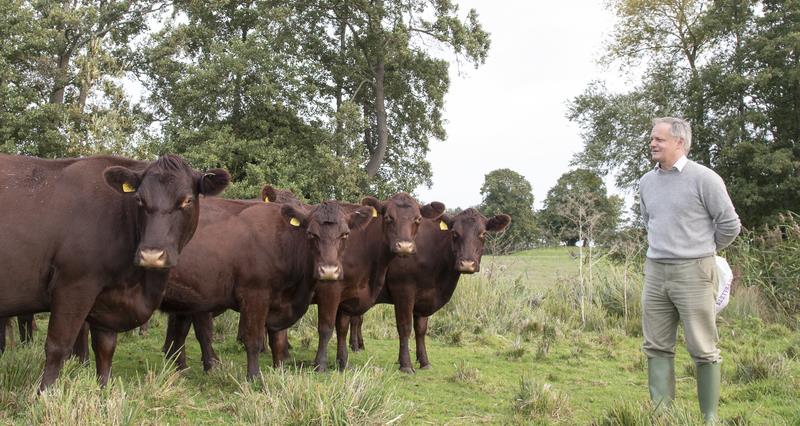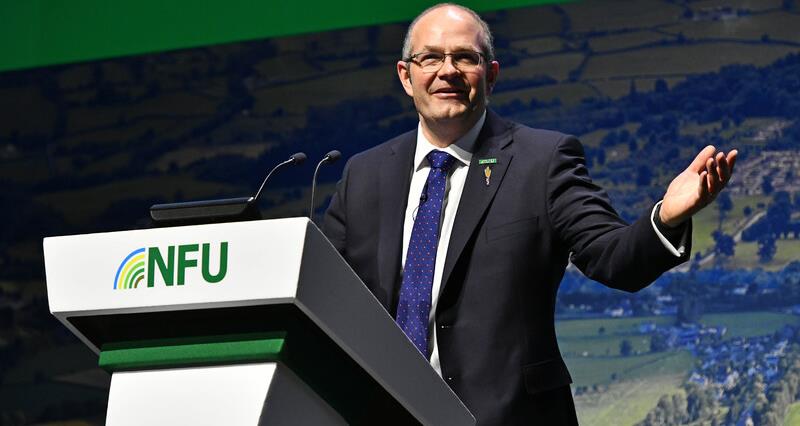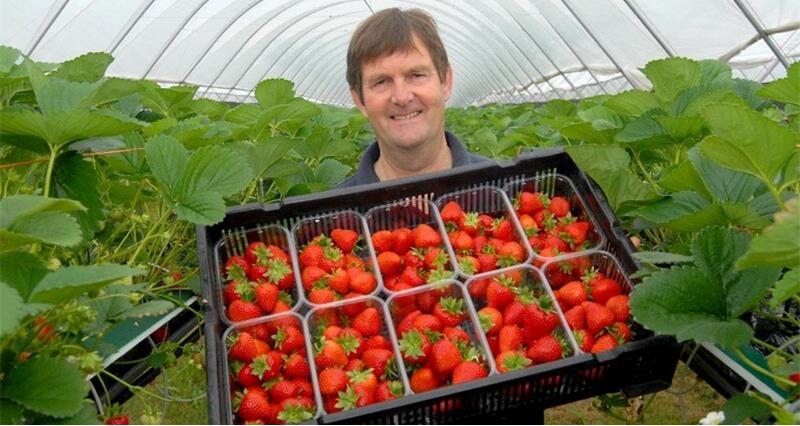I manage 10,000 acres in Suffolk, where the soil is very sandy and liable to blow around, which is typical for Breckland. Our main focus is growing irrigated root crops, but we also grow sugar beet, cereals and forage maize/rye for our on-site anaerobic digestor.
We also farm 1,500 acres of grassland for suckler cows, and breeding and finishing sheep. This is in addition to three outdoor free range pig units and three outdoor broiler units. Finally, we’ve also diversified with an events business on the farm, where we host many festivals and other events.
Alongside this, we have 2,000 acres of woodland, 1,500 of which is native woodland. Recently we repurposed 10% of our least productive arable land to plant 500 acres of fast-growing Paulownia trees, which are great at storing carbon.
Renewable energy
In terms of renewable energy, 10% of our arable land will soon have solar PV panels producing 120MW of electricity. The anaerobic digestor plant produces 700m3 gas-to-grid and 500kW electricity-to-grid every hour, plus digestate which has helped us reduce our artificial fertiliser use by 60% in the last five years. We grew 500 acres of winter wheat without any artificial fertiliser last year.
We also make significant use of our pig and cattle manures, which improves our soil health, fertility and organic matter.
Cover crops are an essential aspect of our farming. They form an integrated part of the rotation and are fully incorporated as a fantastic green manure before we plant the next crop, and have the added benefit of helping to feed the sheep during the winter.
‘Massive inflation’
We implemented these measures on farm to improve the farm’s soil organic matter, but they also greatly assist in improving profitability. This factor has been coming into its own this past year with massive inflation in energy and fertiliser costs. I want to farm like my grandad did, in a circular economy, but utilising modern technology.
Fuel and fertiliser have always been our greatest GHG (green house gases) emitters, so it makes sense to reduce their use in our business as much as possible. It’s all about finding a better balance of input to output.
“I want to farm like my grandad did, in a circular economy, but utilising modern technology."
NFU Suffolk County Chairman Andrew Blenkiron
Tips and tricks
My biggest piece of advice to anyone that’s thinking about cutting their emissions and inputs would be to really understand their costs; try to see if you can tailor your artificial fertiliser usage even more to your crop requirements, grow cover crops and use manure even more efficiently. Also, make sure to monitor your inputs as understanding the numbers will make it easier to manage and improve.
Finally, don’t overlook the power of trees and hedges. Not only are they great for sequestration, but they are great for biodiversity too!
The Resilience Plans
Many of the climate-friendly actions that Andrew has taken to improve his GHG footprint and business resilience can be found in the NFU Combinable Crops, Livestock and Sugar Resilience Plans.
Climate-friendly farming is good for business; it can help members achieve better market access, cost reductions, business resilience and consumer approval, alongside reducing greenhouse gas emissions.
The Resilience Plans set out in one place what could be achieved based on what we are asking government to do for farmers and growers. Each sector is defining its own priorities, highlighting the member benefits and associated challenges, alongside the support needed from government, industry and R&D for increased uptake of climate-friendly farming practices.
Farming resilience principles
- Increasing productivity through reducing fertiliser inputs.
- Increasing carbon sequestration
- Diversifying the crop rotation (including renewable cropping for biofuel/biomass).
- Installing renewable energy sources.



